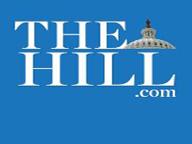Faculty News
—
Professor Roy Smith comments on Silicon Valley's efforts to work with more diverse underwriters
—

Excerpt from Bloomberg -- "Others, however, see the Silicon Valley move mainly as public relations: Allocating a tiny fraction of deals to the firms costs corporations next to nothing. 'It’s entirely cosmetic,' says Roy Smith, a professor of finance at New York University and a former partner at Goldman Sachs. 'It’s a sign of good behavior.'"
Faculty News
—

Excerpt from Bloomberg -- "Others, however, see the Silicon Valley move mainly as public relations: Allocating a tiny fraction of deals to the firms costs corporations next to nothing. 'It’s entirely cosmetic,' says Roy Smith, a professor of finance at New York University and a former partner at Goldman Sachs. 'It’s a sign of good behavior.'"

















